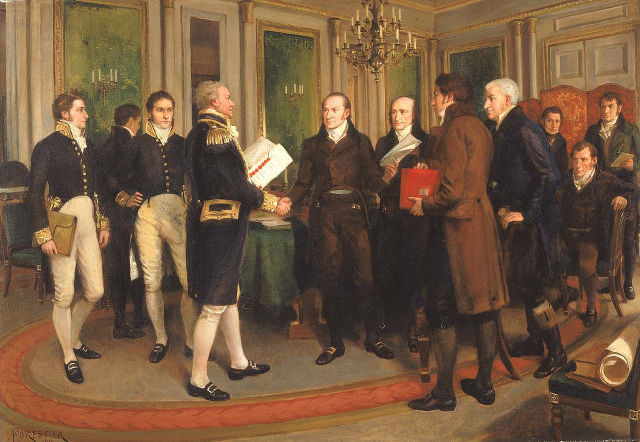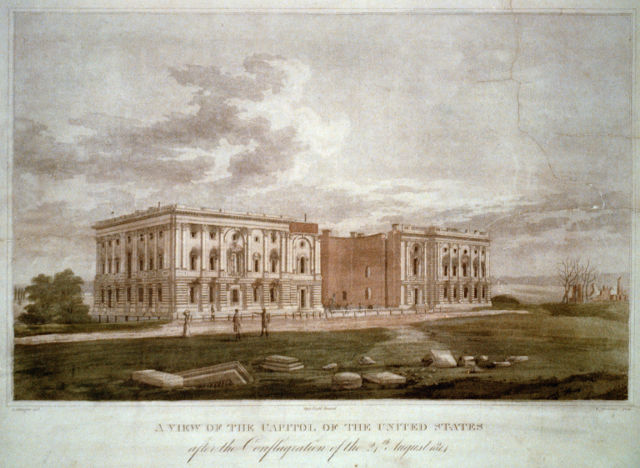
Two-hundred years ago this Christmas eve, American and British officials signed the Treaty of Ghent, which ended the War of 1812. On its face, the terms of the treaty seem simply to reiterate the terms of the 1783 treaty which ended the American Revolution.
Indeed, in the War of 1812, the United States sought to claim rights as a nation that it nominally achieved in the Revolution. The inconclusive end to the War of 1812—for every party but Native Americans, who were left out of the treaty negotiations, and then left to suffer at the hands of a newly emboldened United States—the very thing that makes it appear forgettable actually points to its greatest significance. Creating the United States was a difficult and drawn-out affair, much more so than modern political pundits would have us believe, and the War of 1812 and the Treaty of Ghent were part of that tense process.
Most Americans have ignored the bicentennial of the War itself, and will not commemorate its end either, and it is worth asking why. The notion that the United States had to desperately vie to maintain its independence flies in the face of a widespread and entrenched sense of American exceptionalism—the idea that the United States is a unique and superior nation—the roots of which lay in the American Revolution. In 1776, Tom Paine argued that Americans had the “power to begin the world over again.” And modern Americans tend to believe that the Declaration of Independence and the creation of the United States did just that.
July 4th, 1776 is our epochal moment, imbued with a sense of inevitability. And so Americans find it difficult to come to grips with, and perhaps intentionally ignore, how independence was contested for decades after. But in many critical moments in its early history, the United States had to demonstrate and defend its sovereignty on a global stage. In the process, Americans also reimagined and remade the meaning of their revolution and their nation. The aftermath of the Treaty of Ghent was one of those moments.

In our particular political moment, the fetishization of the American founders and founding seems to have reached new heights. Modern politicians often try to channel the legacy of the founding, which they see as pristine, to justify their policies. In the same way that slavery upsets the notion that American principles were perfectly sound from the outset, remembering the Treaty of Ghent upends the idea that the United States’ rise to power was inevitable and providential. In essence, many modern Americans seek a history where the founding of the United States, as a nation and a set of principles, has persisted unchallenged and unchanged from 1776. Nothing could be further from the truth.
National identity is often constructed through the selective use of the past. In the case of the Treaty of Ghent, and the War of 1812 which it ended, American national identity was created through forgetting the whole thing.
